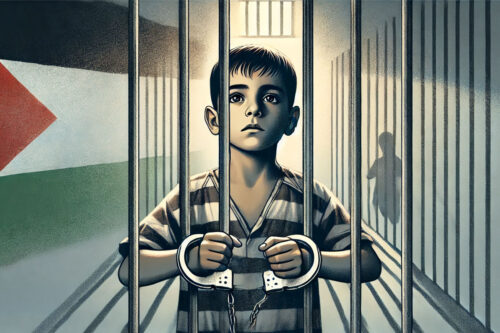Trauma: A quiet crisis

The images transmitted from Palestine look like what we have come to expect from a war-zone. Children, shell-shocked and crying from artillery shooting. Weeping women lying beside the ruins of derelict building that once was the roof over her head. Young men, stricken and angry, fists clenched in a gesture of defiance. Pictures such as these encourage us to share the pain of those captured in the photograph. The intensity of these emotions also urge us to find ways to improve the situation, however we can. However, the long-term consequences of repeated bursts of violence have dramatic effects upon the mental health of the population too, something that tends to be overlooked in times of crisis.
When advocating for people in times of distress, mental health is not first on the list of priorities, for aid agencies and those concerned at home. As news of injuries on the ground emerge from the scene, these naturally, become the focal point for first responders and medical professionals. The lack of supplies and restrictions on the import of hospital equipment also contributes to the prioritisation of immediate medical attention over holistic therapies to combat long-term stress and trauma. As the physical effects of mental illness are often subtle or unapparent, media agencies deem this phenomenon a story for a later date, and remain preoccupied with snapshots of immediate distress.
However, as we know from our own history in the years following the First World War, bearing witness to intense catastrophe inevitably takes its toll. As soldiers returning from the battlefield were haunted by the memories of the war, many people in Palestine, (especially Gaza) now suffer from Post-Traumatic Stress Disorder. A recent study showed that 92% of Gazans between the ages of 13 and 18 showed symptoms of PTSD, in an epidemic that is set to scar the next generation for years to come. Symptoms of the condition can include nightmares and flashbacks of the traumatic moment, which in turn has repercussions for general health, education and emotional stability.
At Interpal we believe it is time to end the stigma and talk openly about mental health in Palestine and in war-torn countries around the world. Our #ChanceToLive medical aid fund offers psychosocial support training to medical professionals and nursing staff and helps develop initiatives like the ‘Friday of Joy’ days to round out treatment programmes.
It’s #TimeToChange, and we need your help to start this dialogue. If you would like to donate call 0208 961 9993 or visit www.interpal.org
#PalestineFacts
Calculate your Zakat
Confused about how to calculate your Zakat? Try our simple-to-use calculator

![A Shadow R1 spy aircraft operated by the UK's Royal Air Force, accused of supporting the genocide in Gaza [Jerry Gunner / Wikimedia]](http://www.interpal.org/wp-content/uploads/2025/04/1768px-Shadow_R1_5AC_Sqdn_RAF_Waddington_this_morning-e1745166357309-500x333.jpg)

![Fighters from Israel's pre-state militia occupying the village of Deir Yassin, April 1948 [IDF archive / Wikimedia]](http://www.interpal.org/wp-content/uploads/2025/04/Jewish_militias_in_the_village_of_Deir_Yassin_April_1948_cropped_and_edited-e1745166391491-500x333.jpg)